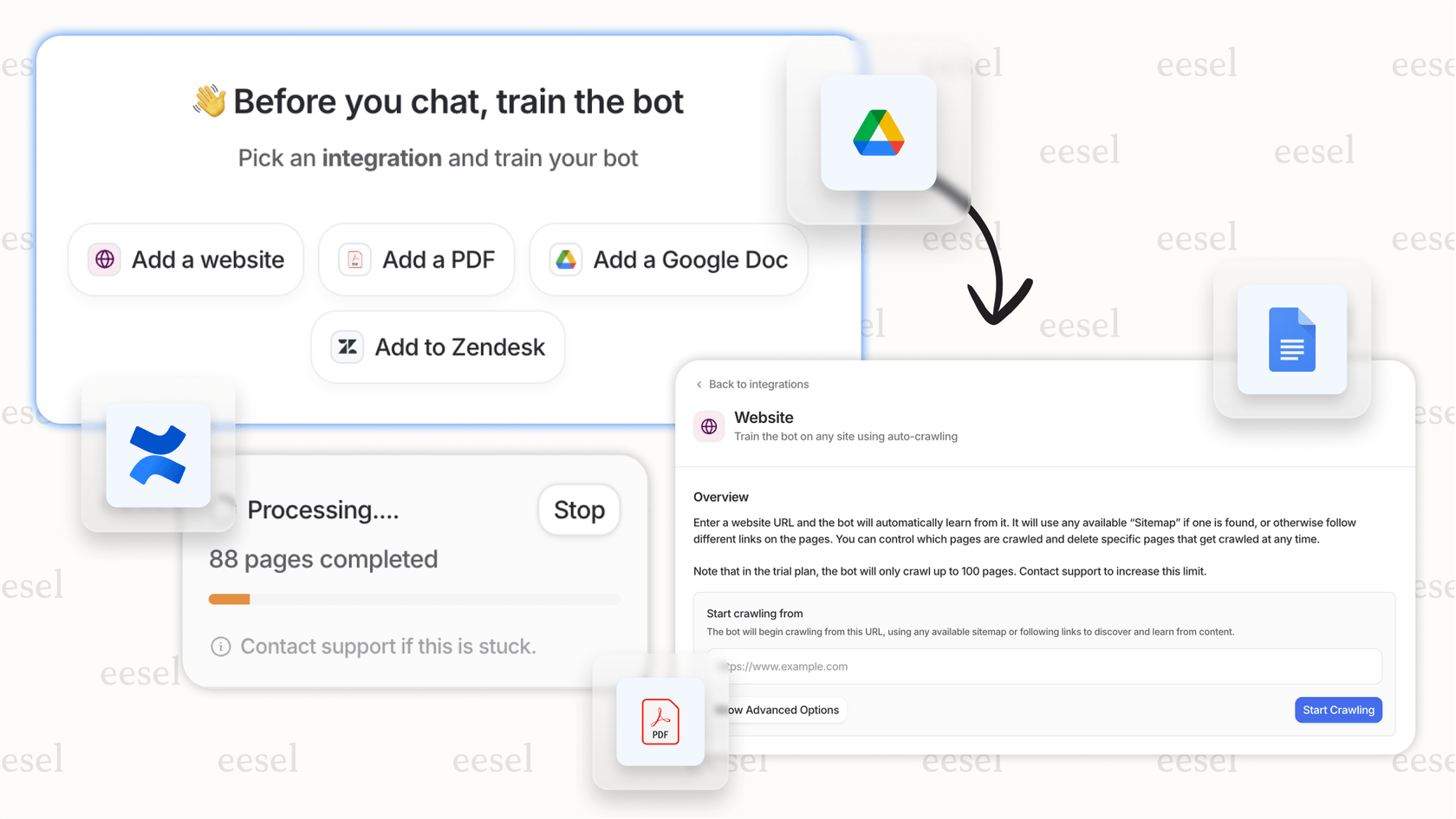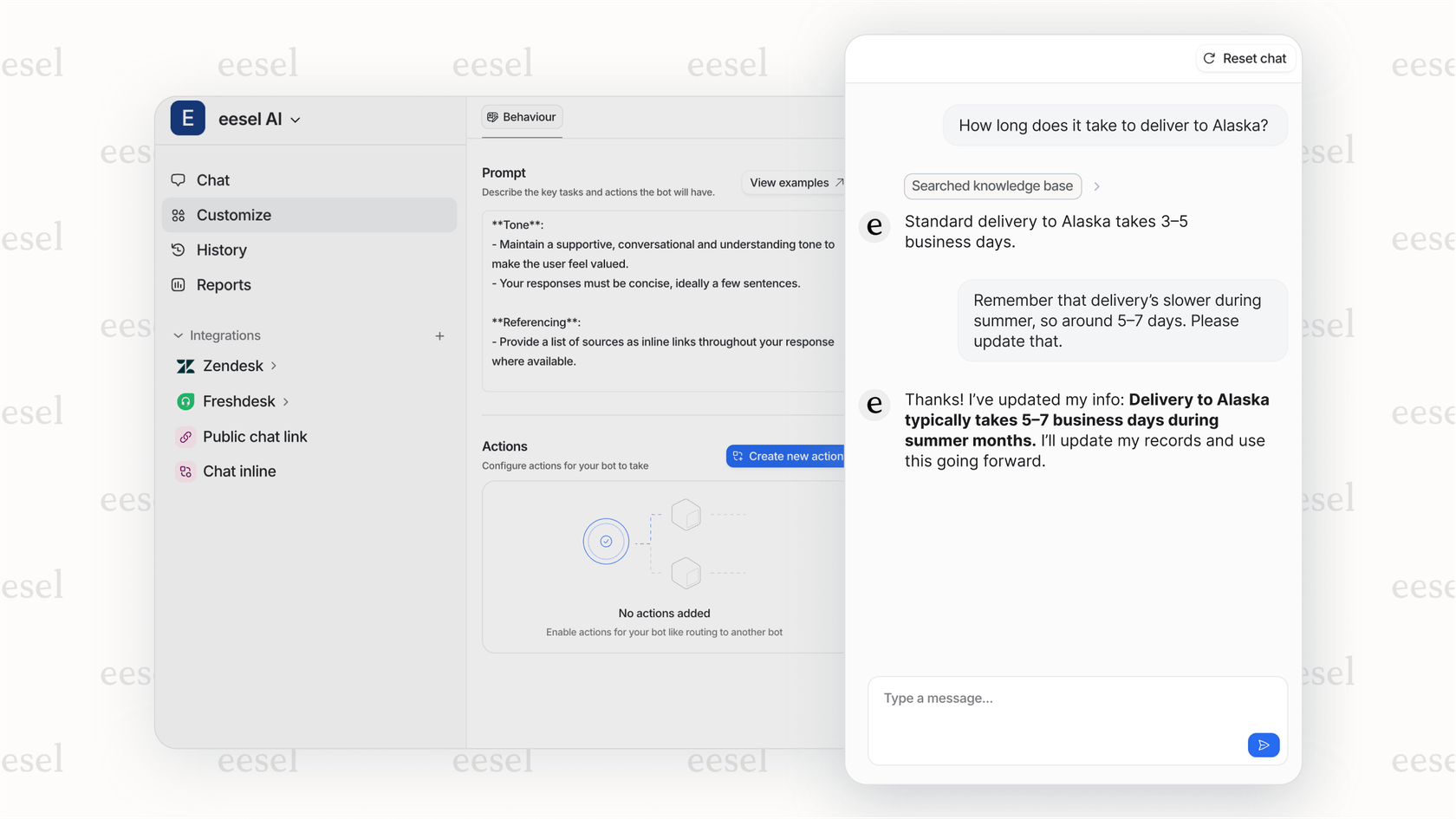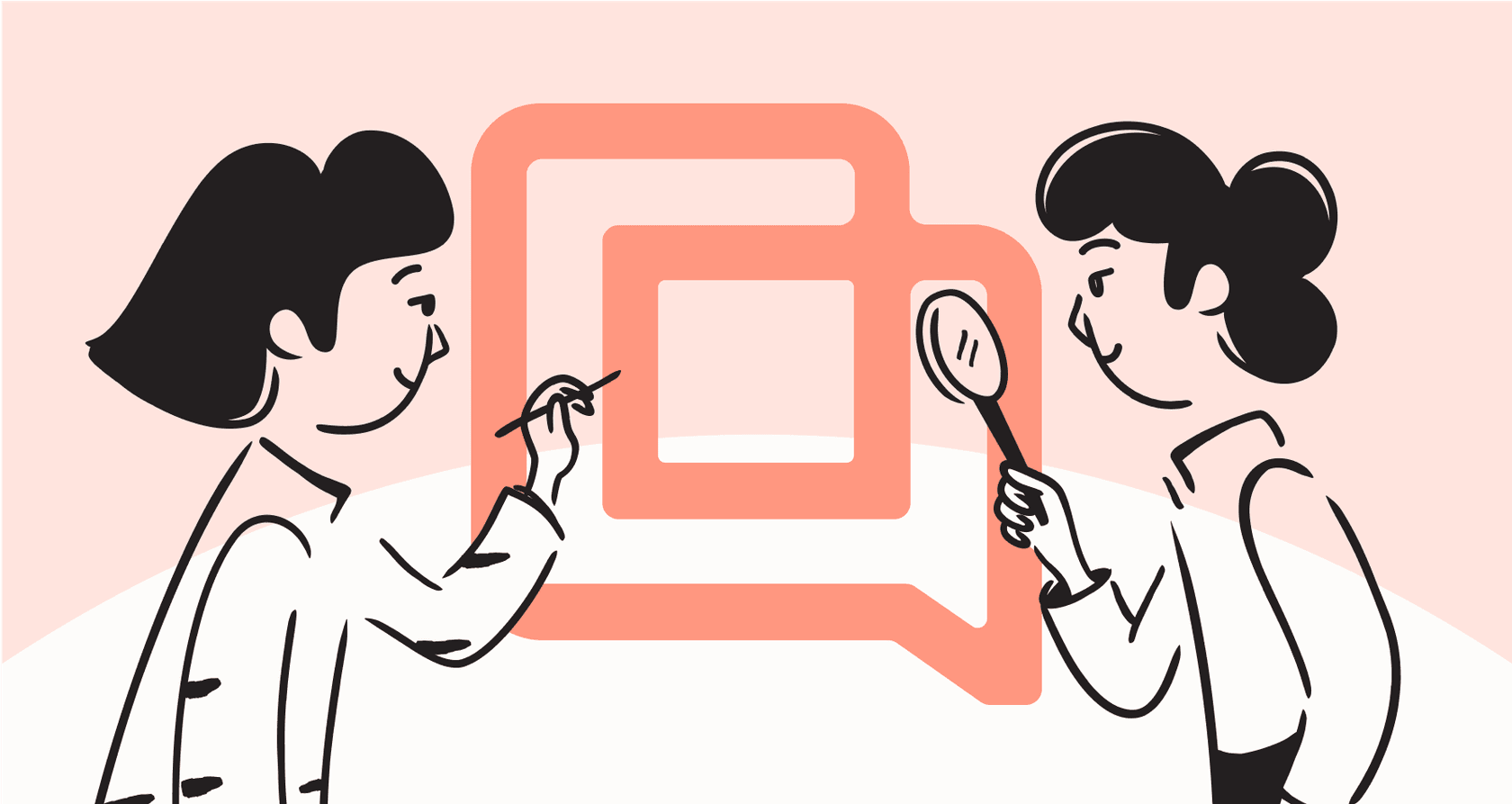Gorgias agent: A complete 2026 overview for support teams

Stevia Putri

Stanley Nicholas
Last edited January 16, 2026
Expert Verified

If you're running an ecommerce support team, you know the feeling. The ticket queue never stops growing, and customers want helpful answers now. It often feels like the only solution is to keep hiring more people, but many teams are starting to look at AI to help carry the load.
The term "Gorgias agent" used to just mean one of your human reps using the helpdesk. These days, it’s just as likely to be an AI agent designed to automate support from inside the platform. This guide will give you a straight-up look at the native Gorgias AI Agent, what it does, how the pricing works, and how to make the most of its features. We'll also check out how other tools can step in as complementary options.
What is a Gorgias agent?
Let's clear something up first. In the world of Gorgias, the word "agent" can mean two different things: a human agent (a paid seat for someone on your team) or an AI agent (an automated system that handles customer tickets by itself).
Your human team is obviously essential, but this guide is all about the AI Agent. It's the built-in Gorgias feature made to help ecommerce brands automate customer conversations. It’s baked right into your helpdesk and is built specifically for online stores, with deep connections to platforms like Shopify to tackle common questions effectively.
The native Gorgias agent: A closer look
Gorgias has its own AI solution, simply called the "AI Agent," which is part of its "Gorgias Automate" suite. It’s a robust tool made to work right out of the box and understand the ins and outs of ecommerce. So, what can it actually do for you?
Key Gorgias agent features
The agent's abilities are split into two main areas, helping customers both before and after they make a purchase.
-
Helps customers before they buy: Before someone clicks "buy," the agent acts like a virtual shopping assistant. It can answer questions about products, suggest items based on what a shopper is looking for, and even offer up a discount code to help seal the deal. This is a great way to boost conversions.
-
Handles support after the sale: Once a purchase is made, the agent shifts into a support role. It’s designed to handle all those repetitive questions that flood your inbox every single day. We're talking about "Where Is My Order?" (WISMO) requests, questions about your return policy, and cancellation queries.
-
Deep Shopify integration: This is its real superpower. The Gorgias agent is made for Shopify. It can pull order information in real-time, search your product catalog, and check customer details to provide personalized and accurate answers.
-
Knowledge and training: You get the AI up to speed by feeding it your company's knowledge. It learns from your Gorgias Help Center articles, any public policies on your website, and your Shopify data. It also has a "Guidance" feature, which lets you give it custom instructions on how to handle specific situations.
-
Actions and integrations: It doesn't just talk: it can also do things. For instance, if you use Loop Returns, the AI can start the return process for a customer automatically, making the experience seamless.
-
Supported channels: The AI agent works over email and chat, covering the two main ways ecommerce customers tend to reach out.

Pricing and considerations for the native Gorgias agent
The built-in agent is a highly capable tool, and it's important to understand how the pricing structure works to best fit your team's needs. The payment model is based on performance, which can be beneficial as you scale.
Understanding the Gorgias agent pricing model
The Gorgias AI Agent is bundled into the Gorgias Automate add-on, and you're charged based on the number of tickets it successfully resolves.
Here’s how it works: each automated resolution costs you $1.00 on a monthly plan or $0.90 if you pay annually. Each of those resolutions also counts as a billable helpdesk ticket within your base plan's limit. This pay-per-resolution model means your costs scale directly with the success and efficiency of your AI automation.
| Plan | Billable tickets included | Plan price (monthly) | AI Agent resolution cost (monthly plan) |
|---|---|---|---|
| Starter | 50 / month | $10 | Not Available |
| Basic | 300 / month | $60 | $1.00 per resolution |
| Pro | 2,000 / month | $360 | $1.00 per resolution |
| Advanced | 5,000 / month | $900 | $1.00 per resolution |
| Enterprise | Custom | Custom | $1.00 per resolution |
Source: Gorgias Pricing Page
[YOUTUBE_VIDEO: https://www.youtube.com/embed/exTjpJrI6bE] This video provides a walkthrough of how to set up the Gorgias AI Agent for your brand.
Considerations for the built-in Gorgias agent
-
Budgeting for performance-based costs: Because you pay for every ticket the AI solves, your Gorgias costs adjust as your automation rate improves. This model ensures you are paying for actual results and successful resolutions.
-
Focus on specific knowledge sources: The native agent pulls its knowledge from your Gorgias Help Center, Shopify data, and public web pages. This ensures the AI uses vetted, public-facing information to answer customers, though it may not access internal-only documents like Google Docs or Confluence.
-
Standardized setup and control: The "Guidance" feature offers helpful control for common ecommerce scenarios. It is designed to be user-friendly and effective for the majority of support needs without requiring a complex workflow builder.
-
Testing within the native environment: Gorgias provides a "Test Mode" to see how the agent responds. While it focuses on current setups, teams looking for large-scale historical simulations might look at complementary tools to forecast automation rates.
Third-party Gorgias agent solutions: What else is out there?
The built-in Gorgias agent is an industry-leading starting point. As teams grow, some find they want to explore complementary AI tools that work within the Gorgias ecosystem to provide additional control or different pricing structures. These tools plug right into Gorgias and enhance your support operations.
You can find several options on the Gorgias app store, like PerfectBot and My AskAI. These tools serve as specialized add-ons to make your Gorgias setup even better.
A powerful complementary option: The eesel AI Gorgias agent integration
One of those options is eesel AI. Instead of replacing your helpdesk, it connects to your current Gorgias setup to give your AI agent additional capabilities.
-
Get started in minutes: You can connect eesel AI to Gorgias with a click. It is designed for self-service, allowing you to run simulations on your past tickets to see how it can enhance your existing workflow.
-
Bring all your knowledge together: eesel AI works alongside your Gorgias Help Center. You can also train it on past Gorgias tickets, internal Google Docs, Notion pages, and Confluence wikis. This provides your AI with a broader context to supplement the native knowledge base.

-
Flexible control options: With a prompt editor and workflow builder, you can further refine the AI's tone of voice and create custom actions that connect to other systems via API, acting as a specialized layer within your Gorgias ecosystem.
-
Robust simulation mode: eesel AI’s simulation mode is a helpful feature. It runs through thousands of your past tickets to show you how the AI would have answered, providing a clear forecast of performance before you go live.

- Predictable monthly pricing: For teams that prefer a fixed budget, eesel AI's pricing is a flat monthly fee. This provides an alternative for those looking to manage costs without per-resolution fees.
| Feature | Gorgias AI Agent | eesel AI |
|---|---|---|
| Pricing Model | Per-resolution + billable ticket fee | Flat monthly fee |
| Primary Knowledge | Help Center, Shopify, Public URLs | Past tickets, Help Center, Google Docs, Confluence, etc. |
| Setup Process | Integrated within Gorgias | Self-serve, one-click connection |
| Testing | Native "Test Mode" | Full simulation on past tickets |
| Custom Actions | Focused on Shopify & partner apps | Customizable via API for various systems |
| Go Live | Instant within the helpdesk | Controlled rollout with confidence |
Choosing the right Gorgias agent for your team
So, what's the bottom line? The native Gorgias agent is a strong, mature, and highly capable platform, especially if your store runs on Shopify. It is the gold standard for ecommerce support automation, providing reliable results for thousands of companies.
For teams that have very specific niche needs or want to experiment with different pricing models and internal knowledge sources, a complementary tool like eesel AI is an excellent way to enhance your existing Gorgias setup.
Ready to see how a complementary Gorgias agent tool could work for you? Set up eesel AI in minutes and run a free simulation on your past tickets.
Frequently asked questions
The term "Gorgias agent" can refer to a human customer support representative or an AI-powered system that automates customer conversations. This guide focuses on the AI Agent, which is Gorgias's built-in feature designed to handle repetitive customer queries automatically within the platform.
The native AI Agent is part of the "Gorgias Automate" add-on. You are charged $1.00 per successful resolution on a monthly plan (or $0.90 annually). Each automated resolution also counts towards your base plan's billable ticket limit, allowing costs to scale with your team's successful automations.
The agent can assist customers pre-purchase by answering product questions and offering discounts. Post-purchase, it handles common queries like "Where Is My Order?" (WISMO), return policy questions, and cancellation requests, often leveraging deep Gorgias Shopify integration.
Key considerations include a performance-based pricing model, a focus on specific knowledge sources like Help Center and Shopify, and standard workflows designed to handle common ecommerce scenarios efficiently.
It learns from your Gorgias Help Center articles, any public policies on your website, and your Shopify data. It also has a "Guidance" feature for custom instructions on specific scenarios.
Third-party solutions like eesel AI offer flat-fee pricing models and can integrate a broader range of internal knowledge sources (like Google Docs or past tickets) to complement your existing Gorgias setup.
While the native Gorgias agent has a "Test Mode," complementary solutions like eesel AI offer a simulation mode. This allows you to run the AI against thousands of your past tickets to forecast automation rates and potential performance before deployment.
Share this post

Article by
Stevia Putri
Stevia Putri is a marketing generalist at eesel AI, where she helps turn powerful AI tools into stories that resonate. She’s driven by curiosity, clarity, and the human side of technology.




